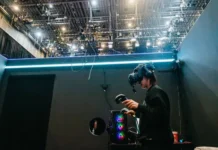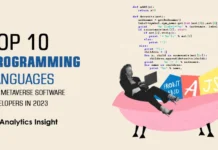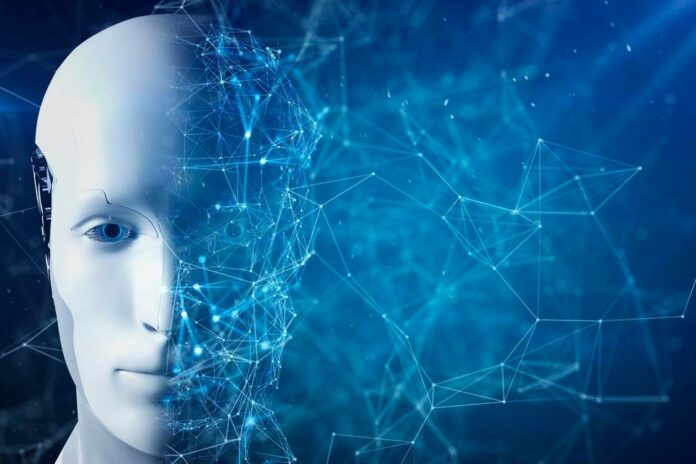Artificial Intelligence
The industrial sector might undergo a major transformation thanks to artificial intelligence. Possible benefits include things like higher output, lower costs, better quality, and less downtime. Just a few industries that stand to gain from this technology include large manufacturing. Many small companies need to be aware of how simple it is to get high-value, affordable AI solutions.
What Applications Does Artificial Intelligence Have For Manufacturing?
Artificial intelligence has several potential applications in the manufacturing sector given the enormous amount of data generated every day by industrial IoT and smart factories. To better evaluate data and make choices, manufacturers are increasingly using artificial intelligence (AI) tools like deep learning neural networks and machine learning (ML).
More precise demand forecasting and reduced material waste are only two of the numerous uses and advantages of AI in manufacturing that are conceivable. Production and artificial intelligence (AI) go hand in hand because industrial manufacturing environments require tight cooperation between humans and robots.
Artificial Intelligence Opportunities in Manufacturing
Since they enable businesses to change their business models, develop operational paradigms to support those models, and monetize information to increase productivity, artificial intelligence (AI) and machine learning (ML) technologies have emerged as manufacturing’s top priority.
Beyond gimmicks and fads, AI succeeds because it offers the manufacturing industry several advantages, including smart production, predictive and preventative maintenance, supply chain optimization, increased safety, improved product development, support for AR/VR (augmented and virtual reality), cost savings, quality assurance, and green operations (energy management), to name a few. Manufacturing sectors utilize AI enablement most frequently to improve overall equipment efficiency and yield.
It’s reasonable to conclude that AI and ML technologies continue to be the driving forces behind the industrial sector. Through a variety of techniques, such as smart operation, design prediction, product quality evaluation, and more, UST has seen the vital application of AI in changing operations, improving product quality, and lowering costs.
We see that one of the largest issues in manufacturing, as well as other sectors including but not limited to logistics, healthcare, insurance, finance, and audit, is scaling AI applications beyond a proof-of-concept (POC) level.
Additionally, it is necessary to persuade stakeholders and end users of the insights into the validity of the data produced by AI. People could feel better at ease keeping a little more stock or being a bit more protective in the supply chain even when they are aware that the inventory recommendations for raw materials or deliverables are appropriate. As a result, adding human heuristics becomes difficult.
Last but not least, choosing a suitable sponsor for the project is a hurdle, in our experience.
Manufacturing is a complicated industry, and choosing the right sponsor is crucial to winning over stakeholders when adopting new Digital Transformation technology.
Logistics and Artificial Intelligence
Production losses brought on by either overstocking or understocking are ongoing issues. Overstocking frequently leads to waste and lower revenues.
Autonomous Vehicles using AI
Autonomous vehicles have the potential to automate the whole factory floor, including conveyor belts and assembly lines.
Connected automobiles with sensors may track real-time information about traffic congestion, road conditions, accidents, and more to improve delivery route planning, reduce accidents, and alert authorities in an emergency. This modification improves the efficiency and security of delivery.
Factory Automation Using AI
In factories, operators manually adjust equipment settings while monitoring numerous signals on several displays, relying on their expertise and intuition.
Operators in this system are now accountable for troubleshooting and testing the system in addition to their usual responsibilities.
This causes some business owners, among other unfavorable results, to underestimate or dismiss the necessity of producing a financial return on investment.
IT operations with AI
Intelligent automation in IT operations, or AIOps, is essential for this purpose. AIOps, as defined by Gartner, is an approach to IT operations automation that uses big data and machine learning.
AIOps is most helpful in automating extensive data management. Besides these, IT service management, event correlation and analysis, performance analysis, anomaly identification, and causation determination are all potential applications.
Francisco Betti, Head of Advanced Manufacturing and Production, and a Member of the Executive Committee, of the World Economic Forum, said:
“The complexity of current challenges impacting manufacturers calls for the need to go beyond the traditional means of driving productivity. Artificial intelligence can help companies unlock innovation, resilience, and sustainability. We look forward to working with the Network of Centres for the Fourth Industrial Revolution and the global manufacturing community to support its deployment at scale,”
Kay Firth-Butterfield, Head of Artificial Intelligence and Machine Learning at the World Economic Forum also said:
These cases demonstrate how leading manufacturers have successfully captured value from AI applications in manufacturing and cover six main areas: health and safety, quality, maintenance, production process, supply chains, and energy management.
Read More:

























































